Sun and Daughter
(Cuidando al sol)
Catalina Razzini / Bolivia, Spain, Germany / 2022 / 84 min
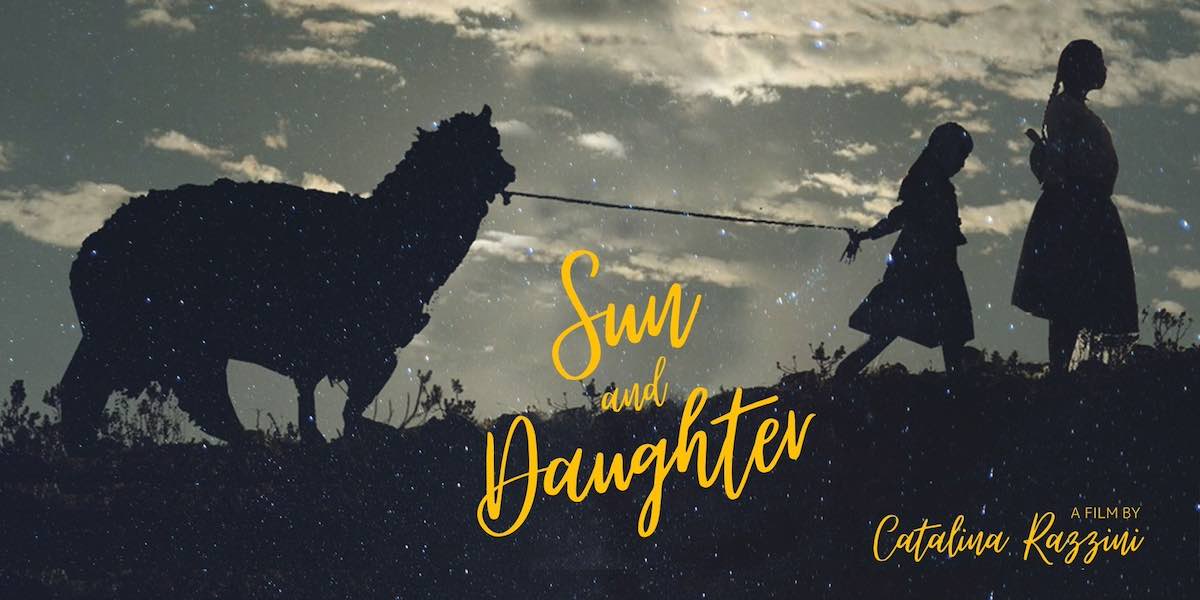
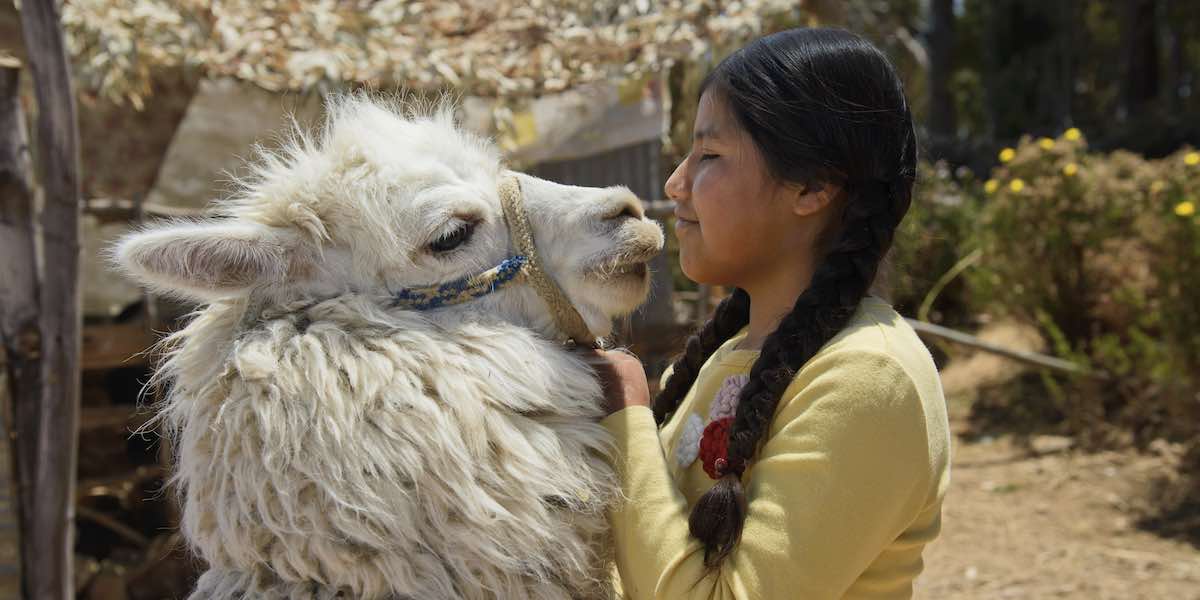


San Francisco Int'l Film Festival
Guadeloupe Int'l Film Festival
Best Script AwardReflets du cinéma ibérique et latino-américain
Kerala Int'l Film Festival
BUFF Malmo Film Festival
Related Films
 Babygirl(La Hembrita)Laura Amelia GuzmánWhy you must see this film. Because it is the jewel of the New Wave of Dominican Cinema. Unlike films such as Alfonso Cuarón’s ‘Roma’ and ...
Babygirl(La Hembrita)Laura Amelia GuzmánWhy you must see this film. Because it is the jewel of the New Wave of Dominican Cinema. Unlike films such as Alfonso Cuarón’s ‘Roma’ and ... Boca ChicaGabriella A. MosesWhy you must-see this film. Because it is an example of the brilliant New Wave of Dominican Cinema. It tackles an incredibly important theme and it is ...
Boca ChicaGabriella A. MosesWhy you must-see this film. Because it is an example of the brilliant New Wave of Dominican Cinema. It tackles an incredibly important theme and it is ...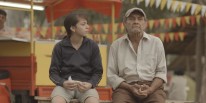 Guaraní(Guaraní)Luis ZorraquínA heartfelt story, Guaraní follows fisherman Atilio as he travels with his granddaughter Iara to Buenos Aires. His great desire is to have a grandson to ...
Guaraní(Guaraní)Luis ZorraquínA heartfelt story, Guaraní follows fisherman Atilio as he travels with his granddaughter Iara to Buenos Aires. His great desire is to have a grandson to ...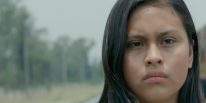 Guie’dani’s Navel(El Ombligo de Guie'dani (XQUIPI' GUIE'DANI))Xavi SalaIn a star-making performance, Sótera Cruz brings razor-sharp intensity to her portrayal of Guie’dani, a Zapotec girl determined to fight for her ...
Guie’dani’s Navel(El Ombligo de Guie'dani (XQUIPI' GUIE'DANI))Xavi SalaIn a star-making performance, Sótera Cruz brings razor-sharp intensity to her portrayal of Guie’dani, a Zapotec girl determined to fight for her ...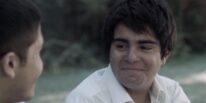 Bad Influence(Mala junta)Claudia HuaiquimillaRebellious Tano is sent from Santiago to Southern Chile under the custody of his father whom he has not seen in years. In his new school, he meets ...
Bad Influence(Mala junta)Claudia HuaiquimillaRebellious Tano is sent from Santiago to Southern Chile under the custody of his father whom he has not seen in years. In his new school, he meets ...Spanish Film Club
Related Subjects
Download
Spanish, Aymara, with English subtitles
With María Belén Callisaya, Karina Paco, Luis Aduviri
Why you must-see this film. Because it is a feel-good debut film by Bolivian director Catalina Razzini, an incredible new talent to watch. It is a sensitive and beautifully crafted depiction in the purest John Ford style of the spectacular landscape of the Island of the Sun, captured through the lens of Spanish cinematographer Santiago Racaj ‘Summer 1993’. And because it has five stars on IMDb!
Ten-year-old Lucía’s family lives in the Island of the Sun (Isla del Sol) in the middle of Lake Titicaca in Bolivia; a place that’s as mystical as it is picturesque. When her father breaks from their routine one morning and leaves for the city to make money, Lucía finds it difficult to cope with his absence, building her daily life around the expectations of their reunion.
After school, Lucía and her younger sister Maribel weave Totora reeds into figurines that her mother sells to numerous tourists. But the rhythm of life on the island and the passage of time help her realize her father is no longer the person she longed to have back. She must find her own path. Lucía is thinking of going to the city herself, but she has no money. It’s time she took her destiny into her own hands.
With a subtle commentary on environmental tourism and the exploitation of “the other” that goes two-way, Catalina Razzini’s touching rural tale masterly captures the landscape of Isla del Sol.
The director, Catalina Razzini, may be available for an in-person or virtual Q&A. A suggested speaker fee of $300 to be agreed directly with the filmmaker is recommended in all cases. Contact us at eric@pragda.com to learn more.
Press
“Catalina Razzini wants to show us the daily life of this indigenous family through the eyes and experiences of Lucía. Her knowledge of what she tells and her great field work elevate the film to a higher level.” – Daniel Borrego Escot, Somos Cine
“Sun and Daughter's capacity for formal seduction derives from the setting of the story: an island in Lake Titicaca. The choice of these locations entails the risk of the film degenerating into a tourist souvenir like the ones the protagonists of the film sell to visitors; but the director manages to avoid it by incorporating the tourists as part of the story, even allowing herself a subtle commentary on their frivolities and the Creole liveliness that the natives of the island take advantage of them.” – Santiago Espinoza A., Ramona Cultural
About the Director
Razzini has extensive experience in the industry as a screenwriter, film director (short films and advertising), assistant director, script supervisor, casting director, and producer. She also worked as an instructor in filmmaking workshops for teenagers for several years and has taught at La Paz’s Film and Audiovisual School. Sun and Daughter is her debut film.
Notes on Film
“The Island of the Sun, in La Paz, Bolivia, is my favorite place in the world. Maybe because I am in love with the memories I have of its unique light. I am convinced that it is that winter light that makes the inhabitants of the island so different. Also, it is that light that submerges us in an atmosphere of tranquility, in a hermetic and mysterious quietness that creates the illusion that the sun is there watching over us as it travels through a deep cloudless blue sky.
In one of those sensory travels to the island, I had a beautiful encounter with two little girls who became the inspiration for Lucía and Maribel. They both had sweet wise eyes, a contagious happiness, and seemed completely focused on every little thing they did, as if it were the most important thing in their lives. Those girls carried on their little backs a heavy load, a mix of nostalgia and desolation. That is what makes them, from such a young age, women capable of being in charge of their own lives, independent, determined, and empowered. People always focus on who or what they are waiting for. In Sun and Daughter, I rather chose to focus on who is waiting and how that process is embraced in what it takes to make of that longing for your purpose in life.”